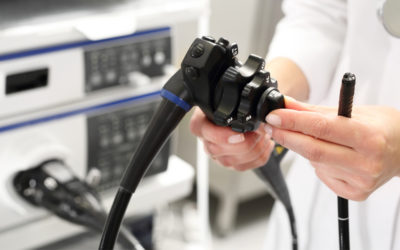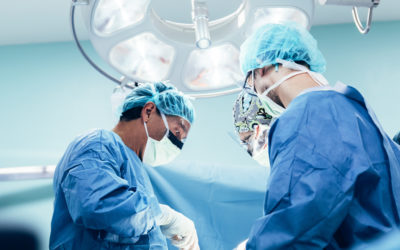Hernia
Hernias can be more than a pain in the side.
People of all ages can develop hernias. A hernia is when an internal organ or tissue bulges through an abnormal opening in the body, such as a hole or weakness in the abdominal wall. Hernias can occur at various parts of your body but are commonly found in the navel, the groin, or anywhere you have had a surgical incision. Often the hernia creates a bulge you can see and feel. Hernias are generally painful and can sometimes damage your internal organs.
Some hernias are present at birth; others develop slowly over a period of months or years. Hernias can also come on quite suddenly. Experiencing an unusual or painful bulge in the affected area is the most commonly reported symptom. Some patients also report discomfort in the abdomen and swelling in the groin that worsens with activity. Though, you could have more subtle symptoms as well – including dull aches and pains. Hernia surgery is often relatively low-risk. Many hernias require the placement of mesh in order to reinforce the weakness in the abdominal wall, which lessons the chance for the hernia to come back.
If you experience a heavy feeling in your abdomen when you bend, pain when you lift heavy objects or a lump that enlarged when you strain and disappears when you lie down, it could be a hernia. Having it treated will not only ease your discomfort, but it could also prevent the hernia from damaging internal organs. At Deaconess Illinois Medical Center, we provide surgical repair for all types of hernias, so don’t wait.
A Q&A Session about Hernias
Women and men of all ages can develop hernias, so it’s important to know what a hernia is.
First things first: What is a hernia?
A hernia is when an internal organ or tissue bulges through an abnormal opening in the body, such as a hole or weakness in your abdominal wall. Hernias can occur at various parts of your body but are commonly found in the navel, the groin or anywhere you have had a surgical incision. Often the hernia creates a bulge you can see and feel. Hernias are generally painful and can sometimes damage your internal organs.
How do I know if I have a hernia?
Some hernias are present at birth; others develop slowly over a period of months or years. Hernias can also suddenly occur. Experiencing an unusual or painful bulge in the affected area is the most commonly reported symptom.
Some patients also report discomfort in the abdomen and swelling in the groin that worsens with activity. It should be noted that you could have more subtle symptoms as well — including dull aches and pains. I can often diagnose a hernia in my clinic office, though sometimes we need a computed tomography (CT) scan to confirm.
Who can treat my hernia?
As a general surgeon, I specialize in repairing hernias surgically. Hernia surgery is often relatively low risk. For many patients, it can often be performed laparoscopically, which typically means you recover faster and get back to your life sooner. Many hernias require the placement of mesh in order to reinforce the weakness in the abdominal wall, which lessons the chance for the hernia to come back.
Is there anything I can do to prevent a hernia?
One of the most powerful ways you can lower your risk is simply by maintaining a healthy weight. Being overweight adds pressure to your abdominal area, which can create a hernia or make an existing one worse. Also you can stop smoking as chronic coughing from smoking increases your abdominal pressure. However, I believe much of it has to do with genetics, which is something that you just cannot change.
Patient results may vary. Consult your physician about the benefits and risks of any surgical procedure or treatment.
Schedule a Consultation
Call 618-998-7155
Related Services and Conditions
Colonoscopy
Colorectal Cancer Screening and Colonoscopy Prep Although colorectal cancer is one of the most common cancers in the United States, it often goes undetected, according to the American Cancer Society. Symptoms do not usually occur until the disease is advanced and 75%...
Surgical Services
Considering surgery? Common (and painful) issues like gallbladder problems, hernias, hemorrhoids can often be taken care of with relatively simple surgeries. In most cases, patients can go home the same day the surgery is performed — allowing them to feel better and...
Gallbladder
Does everything you eat cause pain? If you suffer from pain in the upper right or upper middle part of your stomach after eating it could be your gallbladder causing the issue. The gallbladder is located under the liver, which stores and collects bile produced in the...
GERD
Tired of that burning sensation in your chest -- particularly at night? Could your painful swallowing, nausea, heartburn be caused by Gastroesophageal reflux disease (GERD)? If you experience a burning sensation in your chest, sometimes spreading to your throat, along...
Hemorrhoids
You don’t have to sit still for hemorrhoids Did you know that by age 50, about half of people will experience hemorrhoids? If you’re one of them – and you’ve had enough of the burning, itching and pain – call us today. Treatment is available on an outpatient basis,...





